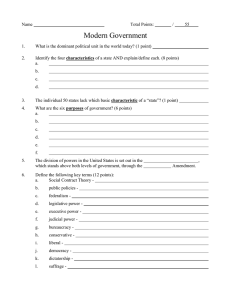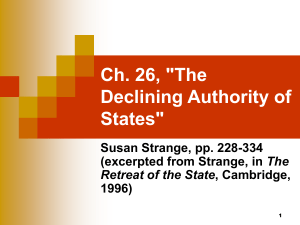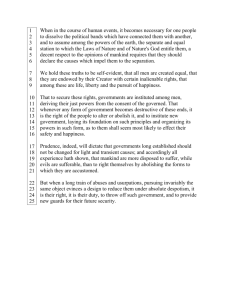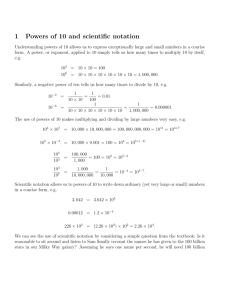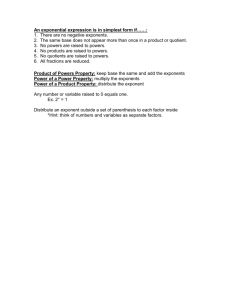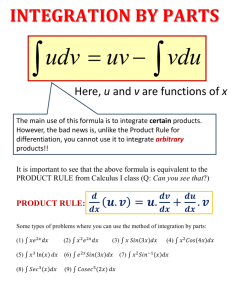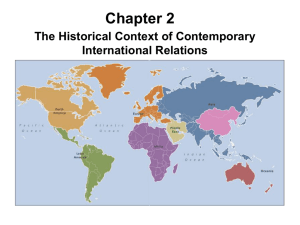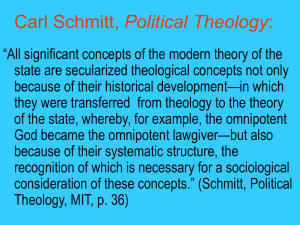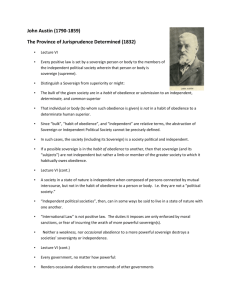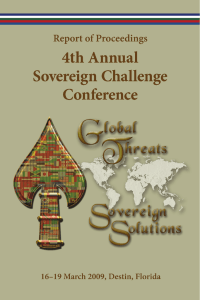Philosophers Notes
advertisement
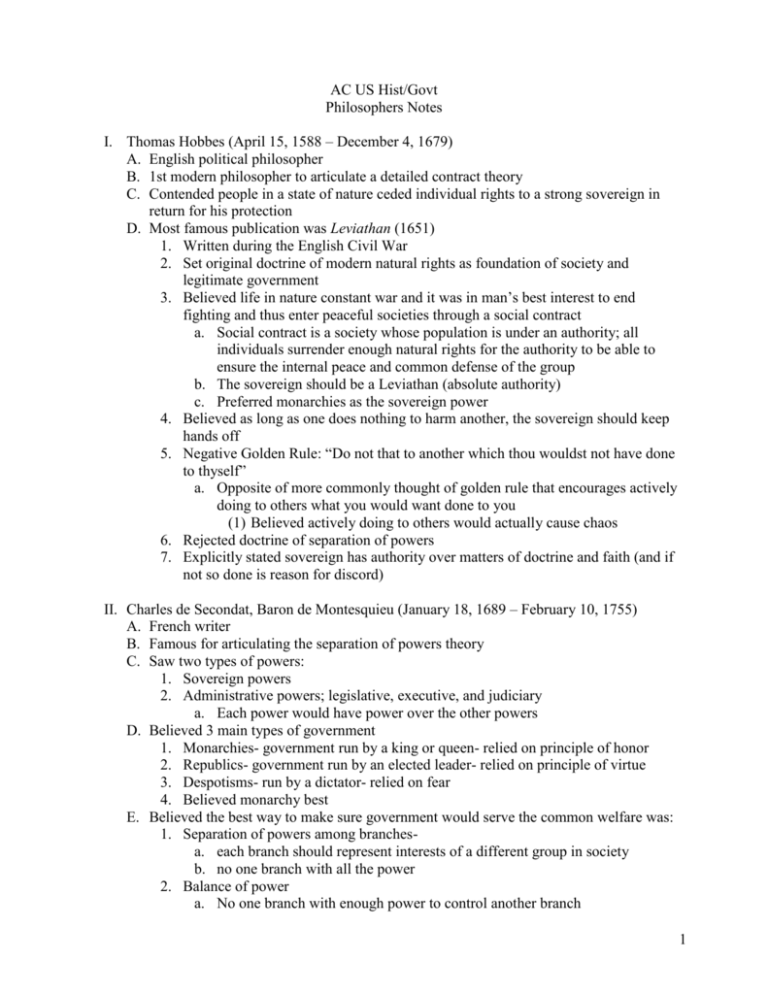
AC US Hist/Govt Philosophers Notes I. Thomas Hobbes (April 15, 1588 – December 4, 1679) A. English political philosopher B. 1st modern philosopher to articulate a detailed contract theory C. Contended people in a state of nature ceded individual rights to a strong sovereign in return for his protection D. Most famous publication was Leviathan (1651) 1. Written during the English Civil War 2. Set original doctrine of modern natural rights as foundation of society and legitimate government 3. Believed life in nature constant war and it was in man’s best interest to end fighting and thus enter peaceful societies through a social contract a. Social contract is a society whose population is under an authority; all individuals surrender enough natural rights for the authority to be able to ensure the internal peace and common defense of the group b. The sovereign should be a Leviathan (absolute authority) c. Preferred monarchies as the sovereign power 4. Believed as long as one does nothing to harm another, the sovereign should keep hands off 5. Negative Golden Rule: “Do not that to another which thou wouldst not have done to thyself” a. Opposite of more commonly thought of golden rule that encourages actively doing to others what you would want done to you (1) Believed actively doing to others would actually cause chaos 6. Rejected doctrine of separation of powers 7. Explicitly stated sovereign has authority over matters of doctrine and faith (and if not so done is reason for discord) II. Charles de Secondat, Baron de Montesquieu (January 18, 1689 – February 10, 1755) A. French writer B. Famous for articulating the separation of powers theory C. Saw two types of powers: 1. Sovereign powers 2. Administrative powers; legislative, executive, and judiciary a. Each power would have power over the other powers D. Believed 3 main types of government 1. Monarchies- government run by a king or queen- relied on principle of honor 2. Republics- government run by an elected leader- relied on principle of virtue 3. Despotisms- run by a dictator- relied on fear 4. Believed monarchy best E. Believed the best way to make sure government would serve the common welfare was: 1. Separation of powers among branchesa. each branch should represent interests of a different group in society b. no one branch with all the power 2. Balance of power a. No one branch with enough power to control another branch 1 F. G. H. I. 3. Checks on power a. Each branch with a way to check the power of the other branches Believed no one branch could control entire government if powers separated, balanced, and checked and thus no one branch could use government for selfish purposes 1. Result was a government that would promote the common welfare Radical because eliminates clergy and erased remaining feudalistic structure Didn’t believe woman could run government Firmly accepted role of hereditary aristocracy and value of primogeniture III. Jean- Jacques Rousseau (June 28, 1712- July 2, 1778) A. Franco-Swiss philosopher, writer, and political theorist B. Outlined a different version of social contract theory C. Outlined basis for a legitimate political order D. Most important work was The Social Contract (April 1762) 1. From a State of Nature to Social Contract a. Claimed state of nature eventually degenerates into a brutish condition without law or morality at which point human race must adopt institutions of law or perish b. By joining together through social contract and abandoning claims of natural right, individuals can preserve themselves and remain free c. This submission to authority to general will of people as a whole guarantees individual against being subordinated to wills of others d. Ensures individuals obey themselves because collectively they are the authors of the laws 2. Sovereignty a. Argues sovereignty in hands of people b. Distinction between government and sovereign (1) Government charged with implementing and enforcing general will and is composed of citizen groups E. Essence of his social theory 1. In order to live in society, humans agree to an implicit social contract which gives them certain rights in return for giving up certain freedoms they would have in a state of nature a. The more rights more responsibilities; less rights less responsibilities F. Bitterly opposed to idea of exercising sovereignty via representative assembly; rather people should make laws directly G. After his death, theories were important in the formation of the socialist movement IV. John Locke (August 29, 1632 – October 28, 1704) A. English philosopher B. Enlightenment thinker 1. Enlightenment stressed reason and logic; believed better humans could progress and develop a better society C. Wrote Two Treatises of Government (also called On Civil Government) in 1690 1. Developed theory of legitimate government 2. Argued people may remove regime that violates that theory D. Believed 1. State of nature proper starting point for examining politics 2 2. Individuals have rights and duties in protecting their own rights and respecting those of others 3. Government can only be created by consent of governed; “Government with the consent of the governed” 4. Government is a fiduciary trust: when trust betrayed, government dissolves 5. Once government dissolved, people free to erect new government and to oppose those who claim authority under the old one (i.e. they are justified in revolting) 6. People contracted together with one another for a particular kind of government and they could modify or abolish that government 7. Believed people had natural rights to life, liberty, and property and people willingly came together in a social contract a. Social contract is an agreement in which people consent to obey a government so long as it safe guards their natural rights; if government becomes tyrannical, Locke maintained people have the right and duty to resist 8. Main purpose of government is to protect natural rights 9. Kings should not have absolute power and should not be able to deprive others of their natural rights V. Social Theory in short argues A. The state arose out of a voluntary act of free people B. State exists only to serve the will of the people C. That people are the soul source of political power D. People are free to give or withhold power as they choose E. Great concepts promoted by this theory 1. Popular Sovereignty 2. Limited Government 3. Individual Rights VI. Conclusion A. Salutary Neglect- England’s relaxing of enforcement of most regulations in return for continued economic loyalty on part of colonies 1. VERY beneficial to colonist 2. Colonists were becoming accustomed to self-rule B. Before the Revolution, philosopher’s ideas were WELL known! 1. Had either read book, or knew ideas from newspapers, political pamphlets, church sermons, or discussions C. By time of Revolution, Founders strongly believed in ideals of republican government and civic virtue 1. Founders claimed Great Britain violating these ideals and was guilty of serving selfish interests at expense of common welfare D. After Revolution, Framers tried to create a government that would not violate their rights; believed an essential step was to create a constitutional government 3

